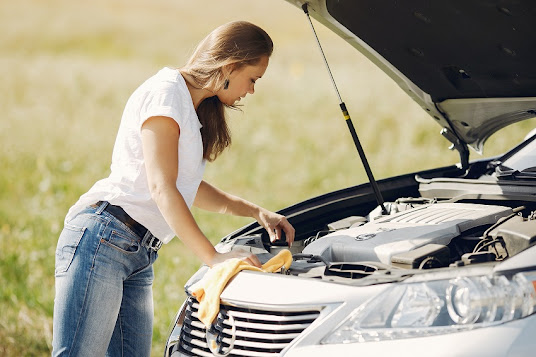What Are The Symptoms Of Engine Damage From Overheating? A Look At CarsCache.com
When your car engine overheats, you may think that it will just fix itself after some time. However, this is unfortunately not the case. Overheating engines can cause serious damage to your car and could cost you a large amount of money in repairs if it's not addressed quickly enough. In this article, we'll be looking at the symptoms of engine damage from excessive heat and how CarsCache.com can help you diagnose any issues before they become too severe.
Introduction to Engine Damage from Overheating
If your engine overheats, it can be severely damaged How Many Times Can An Engine Overheats is called "piston scuffing." When an engine overheats, the metal components expand at different rates. The pistons in particular are subject to a lot of stress and can start to scuff or seize up. This can cause the engine to lose power or even stall completely.
If you think your engine might be overheating, it's important to take action immediately. Pull over to the side of the road and turn off the engine. Let it cool down for a few minutes before opening the hood to check the radiator fluid level. If it's low, add more coolant (but don't open the radiator cap if the engine is hot!). If there doesn't seem to be any leak, start the engine again and drive slowly until you can get to a service station for further assistance.
Overheating can also damage other parts of your car, like the catalytic converter. So if you think your car may have been overheating, have it checked out by a professional as soon as possible.
Common Symptoms of Engine Damage from Overheating
If your engine is overheating, you may notice any of the following symptoms:
-The temperature gauge on your dash reads higher than normal
-Steam or smoke is coming from under the hood
-The engine makes a knocking noise
-The engine seizes up and won't start
If you notice any of these symptoms, it's important to take action immediately. Overheating can cause serious damage to your engine, so it's best to avoid driving if possible and to call a tow truck if necessary
Causes of Engine Damage from Overheating
Overheating is one of the leading causes of engine damage, and can occur for a variety of reasons. The most common cause of overheating is a coolant leak, which can lead to the engine seizing up and requiring extensive repairs. Other causes of overheating include a loss of coolant due to a radiator leak, or a problem with the water pump.
If you notice any of the following symptoms, it's important to pull over and call for roadside assistance as soon as possible:
-The engine temperature gauge rising into the red zone
-Steam or smoke coming from under the hood
-A hissing sound coming from the engine bay
-The check engine light illuminated on the dash
Related Post: 5 Tips To Prevent Your Car's Timing Belt From Breaking
If you experience any of these symptoms, it's important not to ignore them and to call for help right away. Engine damage from overheating can be extensive, and is often expensive to repair.
Prevention and Maintenance Tips for Overheating
Assuming that you are speaking of car engine damage from overheating, there are a few key things you can do to help prevent this type of damage:
-Check your coolant levels regularly and top off as needed.
-Inspect your radiator and cooling system for leaks.
-Replace your coolant every 2 years or 24,000 miles, whichever comes first.
-Flush your cooling system and replace the coolant more often if you live in a hot climate or do a lot of stop-and-go driving.
-Have your mechanic check your cooling system periodically to make sure it is operating properly.
-Never remove the radiator cap until the engine has cooled completely
If you do notice that your car is overheating, pull over as soon as possible and turn off the engine. Do not attempt to add water to the radiator while the engine is still hot as this can cause serious burns. Let the car cool down completely before opening the hood, then check the coolant level and add more if needed. If you think there may be a leak in the system, call a tow truck and have your car towed to a mechanic for repair.
Diagnosis and Repair Options for Engine Damage from Overheating
There are a few different ways to diagnose engine damage from overheating. The most common is to check the engine coolant level and look for leaks. If the coolant level is low, it could be because the engine is overheating and burning it off. Another way to diagnose engine damage from overheating is to check the oil level. If the oil level is low, it could be because the engine is too hot and the oil is burning off
There are a few different repair options for engine damage from overheating. The most common is to replace the radiator or water pump. This will usually fix the problem and prevent future overheating issues. Another option is to install an aftermarket cooling system such as an electric fan or oil cooler. This can help to keep the engine cooler and prevent overheating issues.
Conclusion
In conclusion, it is important to be aware of the symptoms of engine damage from overheating in order to avoid any costly repairs. CarsCache.com provides a comprehensive overview on how to identify these signs and what you can do if you think your car has been overheating or has suffered engine damage as a result. By taking preventative action, such as checking coolant levels regularly and getting regular engine inspections, you can ensure that your car stays in good condition and doesn't succumb to the pitfalls of an overheated engine.




Comments
Post a Comment